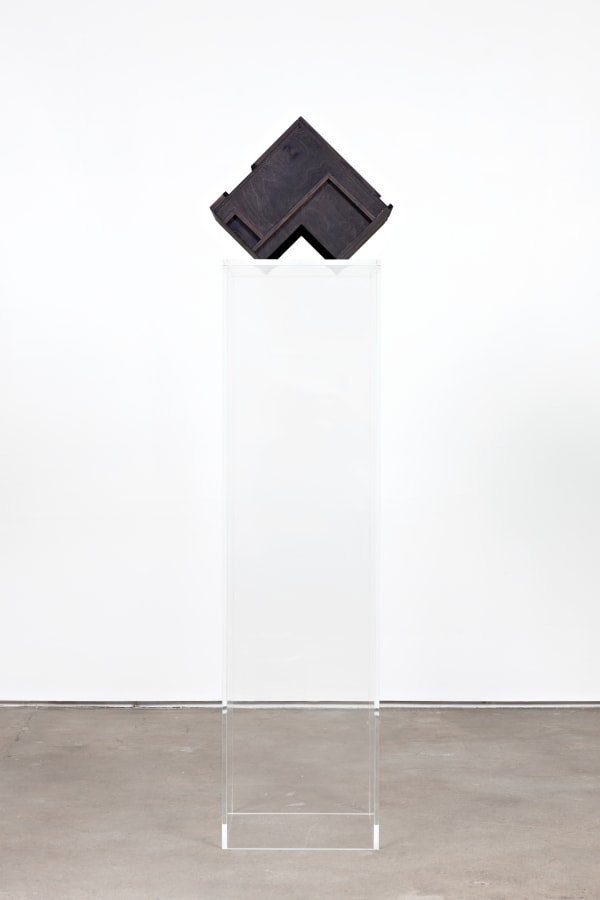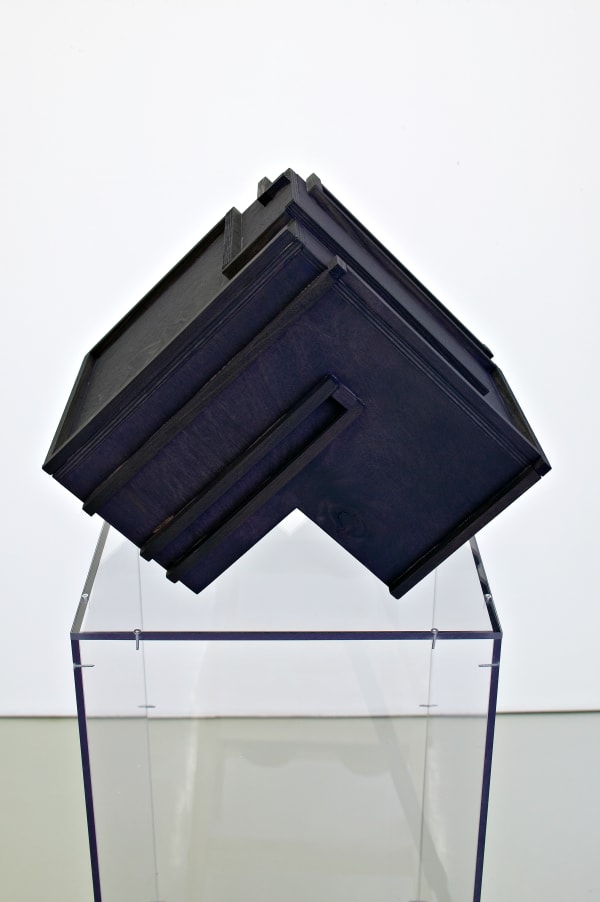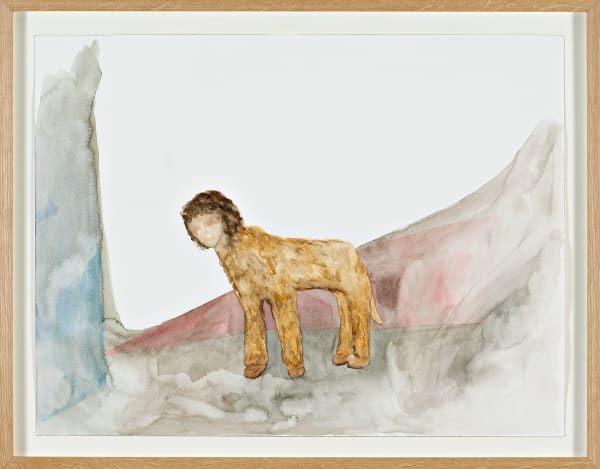MICHAELA MEISE: "Spazieren"
STANDARD (OSLO)
PRESS RELEASE
------
MICHAELA MEISE
"SPAZIEREN"
08.03.-08.04.2007 / PREVIEW: 25.01.2007 / 19.00-21.00 /
-----
STANDARD (OSLO) is pleased to announce its first solo exhibition with Berlin-based artist Michaela Meise. At the centre of her exhibition, entitled "Spazieren", are five stained wooden sculptures of human brains. Reduced to minimal models they offer less of exact evidence and more in terms of confronting the viewer with not knowing. As with the German term 'spazieren' – that may be translated as 'strolling' ¬– Meise is interested in a line of thought uncertain of its own endpoint.
A watercolour painting depicting a creature that is half dog and half girl; two photographs based on stills from the science fiction film "Invaders from Mars" (1956); a torn page from a book showing a woman seated on the ground next to what appears to be an elf. The motifs and references appearing in the works of Michaela Meise do not necessarily correspond, but rather appear as elements in a system of 'dissonance'. Claim and withdrawal are continuously negotiated in Meise's works. Narratives are suggested and then brought to an abrupt halt by the muteness of rustic and coolly distanced sculptures. "Monument Minor" – as she applied as title for a previous exhibition – may also serve as a term for these sculptures, installations and relieves. Almost always executed in wood and then lacquered or stained, they possess the rationality of Classical architecture, the boldness of Modernist furniture design, or share a sense of logic recognizable from display systems. The five sculptures in this exhibition are presented on plinths of transparent Plexiglas. At the same time the rational, bold and monumental character of these works is gauged against an interest in the singular, the incomplete and the imperfect, where the process of their making and the various layers of purple, black and brown stain all are left visible.
The same work method is employed for the last sculpture going into the show, but Handapparat sets itself aside from the others by a particular function. It shares its title with a system of display units commonly found in university libraries. Books on a specific topic (in relation to a seminar or a series of lectures) are here presented for a limited period of time. Meise's selection, however, does not limit itself to a particular topic nor to the task of serving as an index for the exhibition. Nevertheless, it offers both clarifying and mystifying links to the works on display. Among the many books here made available is "The Emigrants", a collection of short stories by the German writer W. G. Sebald. It lingers on what appears to be a recurring motif with some of the books: exile as both involuntary displacement but also a time for contemplation. Connecting with the above-mentioned sculptures, Tinted Brain, Meise addresses the exile in regards to the (re-) construction of the ego. The dislocation of exile – experienced by so many writers and artists through history – has also allowed for a sense of overview and a sense of self. In fact, according to the fellow writer Albert Camus, it represents the essence of the human condition: "In a universe suddenly divested of illusion and lights, man feels an alien, a stranger. His exile is without remedy since he is deprived of the memory of a lost home or the hope of a promised land."
-----
Michaela Meise (b. 1976, Hanau) received her education from Kunsthochschule, Kassel, and Städelschule, Frankfurt am Main. Her works have previously been included in such exhibitions as Of Mice and Men – the 4th Berlin Biennial (2006); Try Again. Fail Again. Fail Better, Momentum – the Nordic Art Biennial (2006); RAF, Kunstwerke Berlin (2005); Formalismus, Kunstverein Hamburg (2004); in addition to solo shows at Johann König, Berlin, Greene Naftali Gallery, New York and Midway Contemporary Art, Minneapolis. Throughout the course of the exhibition Meise's works can also be seen in the exhibition Ruinöse Abstraktion: "Es gibt Dinge, die kann man nicht erklären" in Bonner Kunstverein, Bonn.
-----
Installation photography: Stein Jørgensen










